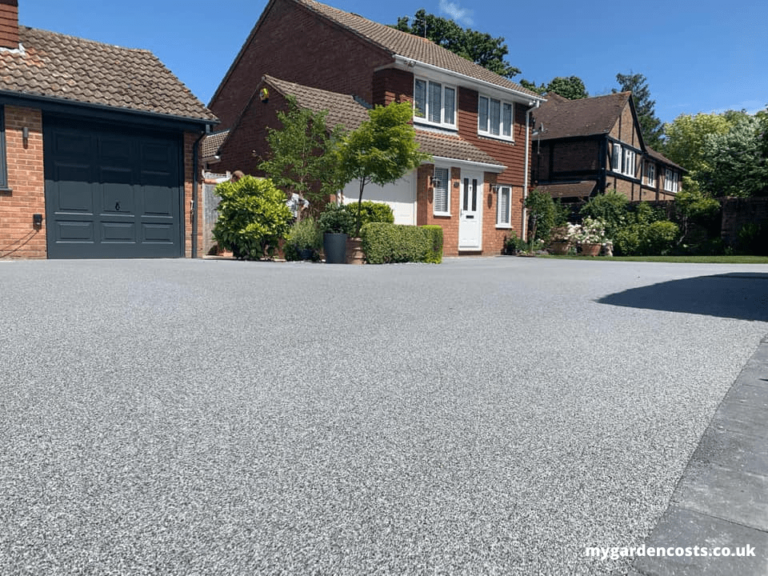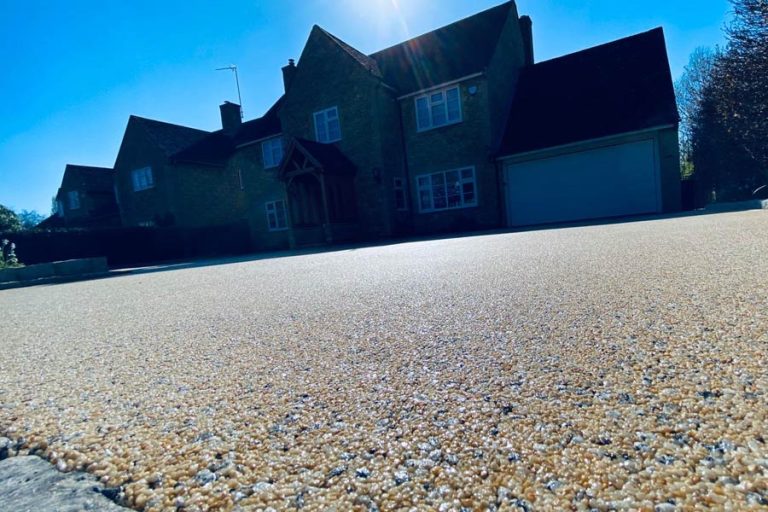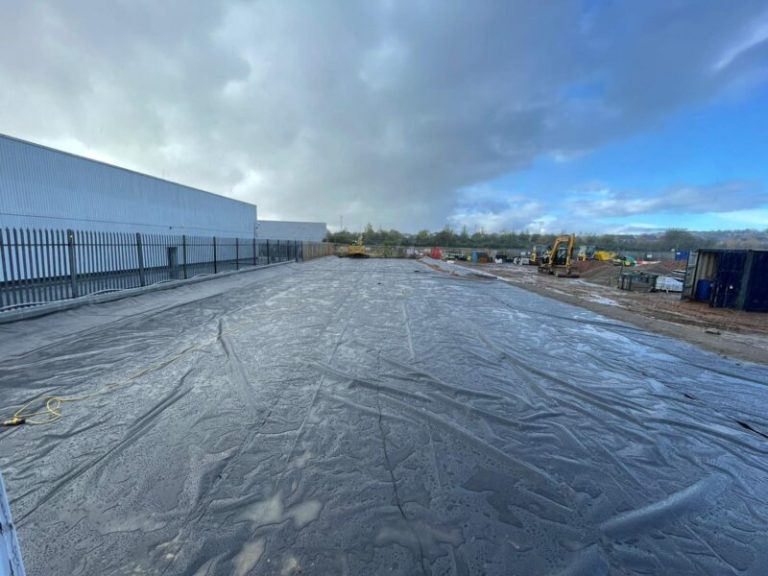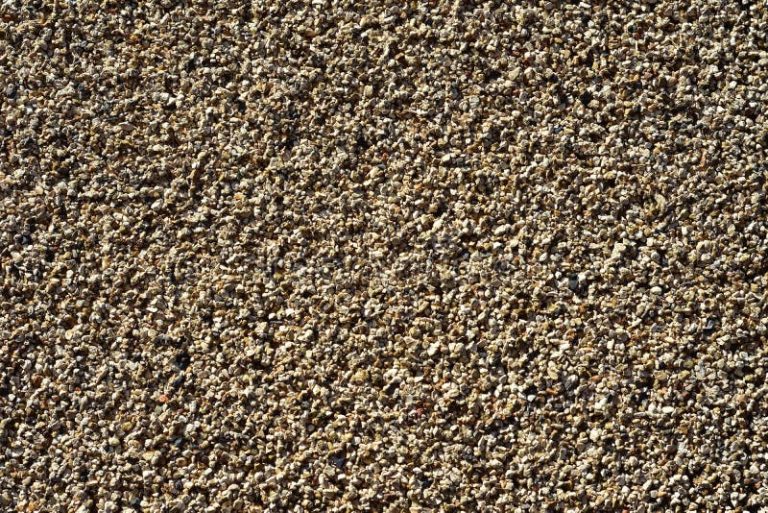Porous Resin Driveway A Sustainable Choice
Porous resin driveway offers an eco-friendly alternative to traditional asphalt driveways. This innovative material, constructed from specific components, boasts impressive water absorption capabilities, significantly reducing stormwater runoff. The manufacturing process is carefully considered, resulting in durable and aesthetically pleasing options. From textured to colored variations, there’s a porous resin driveway to suit every taste and project. A comparative analysis highlights its benefits over traditional asphalt, emphasizing sustainability and long-term maintenance.
This detailed exploration will delve into the various aspects of porous resin driveways, including their environmental advantages, installation procedures, design considerations, cost analysis, suitability across climates, accessibility features, and adherence to local regulations. The comprehensive information presented here aims to provide a thorough understanding of this innovative paving solution.
Introduction to Porous Resin Driveways
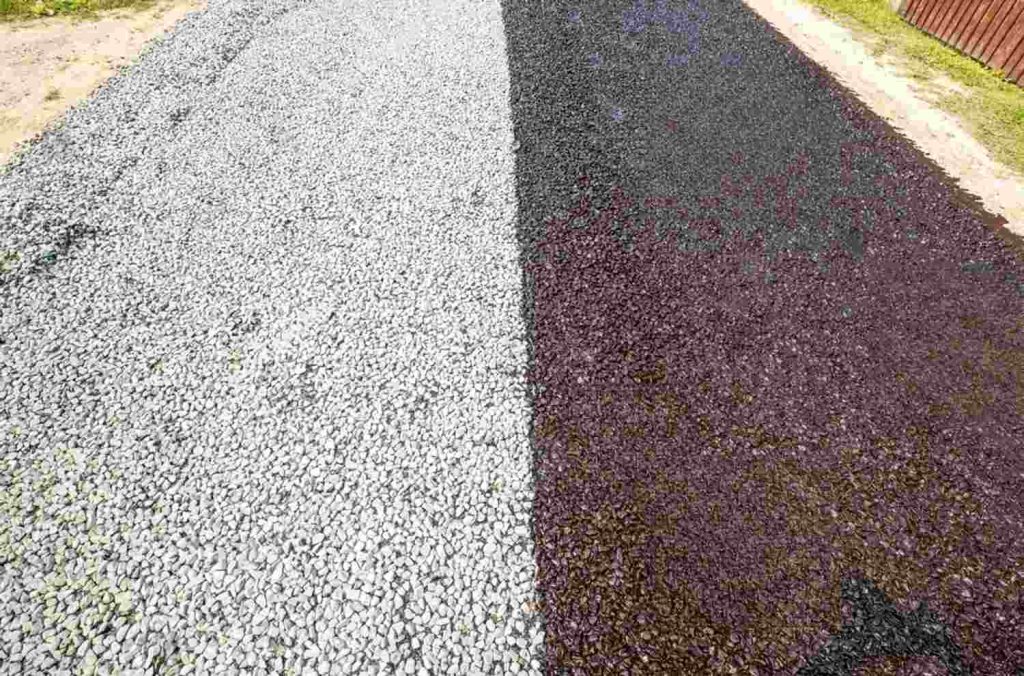
Porous resin driveways represent a modern alternative to traditional asphalt or concrete surfaces. They offer a blend of aesthetic appeal and environmental benefits, making them a growing choice for homeowners and municipalities. These surfaces are designed to allow water to permeate the ground, reducing runoff and supporting local water tables.
Porous resin driveways are engineered with specialized materials and construction techniques, differentiating them from standard pavement options. This innovative approach aims to improve drainage and environmental sustainability.
Key Components and Materials
Porous resin driveways are composed of several key components. A primary component is a specially formulated resin binder, often reinforced with aggregates like crushed stone or recycled materials. This mix is meticulously combined with various additives to enhance its strength, durability, and permeability. The selection of aggregates is crucial; they need to be compatible with the resin binder and provide the necessary support and drainage channels. Properly graded aggregates are essential for ensuring efficient water filtration.
Manufacturing Process
The manufacturing process for porous resin involves several steps. First, the resin binder is meticulously prepared, ensuring the correct proportions and consistency. Then, the selected aggregates are added and thoroughly mixed. This combined mixture is then poured into the prepared driveway area. The mixture is compacted and leveled to achieve the desired thickness and surface smoothness. A crucial aspect of this process is ensuring the proper compaction to achieve the desired permeability and strength. The entire process emphasizes precise measurements and careful handling to ensure a durable and functional driveway.
Types of Porous Resin Driveways
Porous resin driveways come in various forms to suit diverse design preferences. One common variation involves incorporating colored pigments into the resin mix to match the surrounding environment or personal aesthetic choices. Textured surfaces can also be achieved through variations in aggregate size and distribution. This allows homeowners to tailor the look and feel of their driveways to complement their homes and landscapes.
Comparison to Traditional Asphalt Driveways
| Feature | Porous Resin Driveways | Traditional Asphalt Driveways |
|---|---|---|
| Permeability | High, allowing water to seep into the ground | Low water runoff is common |
| Environmental Impact | Reduces runoff, supports local water tables | Contributes to runoff, potentially impacting local water quality |
| Durability | Generally durable, resistant to cracking and weathering, with proper installation | Can crack or become damaged over time, especially with heavy use or exposure to extreme weather |
| Cost | Typically higher than asphalt due to specialized materials and installation | Generally lower than porous resin due to readily available materials and installation methods |
| Maintenance | Requires regular inspections and occasional cleaning | Requires regular maintenance, including patching and sealing |
| Appearance | Can be customized with colors and textures | Limited appearance options, typically dark gray or black |
Installation and Maintenance of Porous Resin Driveways
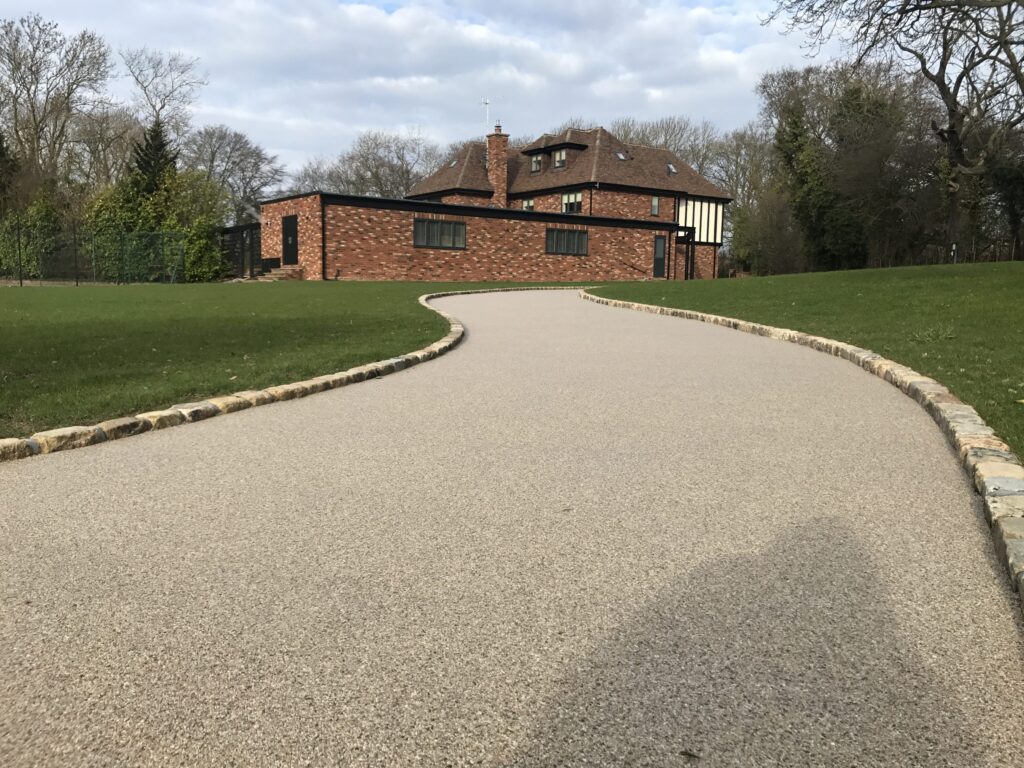
Porous resin driveways offer a sustainable and aesthetically pleasing alternative to traditional asphalt or concrete. Proper installation and maintenance are crucial to ensuring longevity and optimal performance. This section details the steps involved, necessary tools, and best practices for a successful project.
The installation process, while potentially more complex than traditional driveways, yields a durable and environmentally friendly surface. Careful attention to sub-base preparation, material application, and surface finishing is paramount to achieving a high-quality, long-lasting driveway. Furthermore, a well-maintained porous resin driveway will require minimal upkeep, enhancing its overall value.
Installation Steps
Careful planning and meticulous execution are vital for a successful installation. The steps below Artikel the crucial stages in the process.
- Site Preparation: Thorough site preparation is essential. This involves clearing the area of debris, vegetation, and any existing structures. Precise measurements and marking are critical for accurate placement and achieving the desired dimensions.
- Sub-base Preparation: A stable and level sub-base is foundational for a durable driveway. This involves compacting gravel or crushed stone to the correct depth and ensuring proper drainage. A well-compacted sub-base minimizes future settling and unevenness.
- Formwork and Reinforcement: The formwork defines the boundaries of the driveway and provides a stable structure for the resin. Reinforcement mesh is often used to enhance the structural integrity of the resin, especially in areas with anticipated high traffic.
- Resin Application: Precise application of the resin is key to achieving a smooth and even surface. Multiple thin layers are typically applied, allowing each layer to cure before the next is added. Proper mixing and spreading techniques are crucial for a uniform finish.
- Finishing and Curing: Following the resin application, the surface needs careful finishing. This often involves using specialized tools to smooth out any imperfections and ensure a level surface. Adequate curing time is critical for the resin to reach its full strength and resilience.
Necessary Tools and Equipment
The proper tools and equipment are essential for efficient and high-quality installation.
- Measuring Tools: Precise measurements are essential. This includes tape measures, levels, and string lines for establishing accurate dimensions and ensuring a level surface.
- Mixing Equipment: Proper mixing of the resin components is critical for achieving the desired consistency. This often involves specialized mixers and containers.
- Application Tools: Tools for spreading and smoothing the resin, such as trowels, rakes, and floaters, are essential for achieving a smooth and even finish.
- Power Tools: For tasks like excavation and compaction, power tools such as excavators, compactors, and vibratory plates might be required.
- Safety Equipment: Appropriate safety gear, including eye protection, gloves, and respirators, should be used throughout the installation process.
Sub-base Preparation for Porous Resin Driveways
A strong and stable sub-base is critical for a durable and long-lasting porous resin driveway. The sub-base should be properly compacted and leveled to prevent future issues like cracking or settling.
- Grading and Drainage: Ensure proper grading and drainage to prevent water accumulation and potential damage. Water should flow away from the driveway, not towards it.
- Compaction: Thorough compaction of the sub-base material is crucial for preventing settling and ensuring stability. Use appropriate compaction equipment for efficient results.
- Drainage Systems: Consider integrating drainage systems, such as French drains, to manage excess water and prevent damage.
Ensuring a Level and Smooth Surface
A level and smooth surface is crucial for aesthetics and longevity. This involves meticulous attention to detail throughout the installation process.
- Precise Measurements: Precise measurements and accurate marking are critical for ensuring the correct dimensions and a level surface.
- Leveling Tools: Use leveling tools such as laser levels and straightedges to ensure accuracy.
- Smoothing Techniques: Proper smoothing techniques, including the use of specialized tools, are essential for achieving a seamless finish.
Cleaning and Maintaining a Porous Resin Driveway
Regular cleaning and maintenance are vital for preserving the driveway’s appearance and longevity.
- Regular Cleaning: Regular sweeping and occasional pressure washing will remove dirt, debris, and other contaminants.
- Preventing Damage: Avoid using harsh chemicals or abrasive materials that could damage the resin surface.
- Addressing Issues: Address any cracks or damage promptly to prevent further deterioration.
Installation Cost Comparison
| Feature | Porous Resin Driveway | Traditional Driveway (e.g., Asphalt) |
|---|---|---|
| Initial Cost | Higher, due to specialized materials and labor | Lower, often |
| Maintenance Cost | Lower, due to reduced need for repairs | Potentially higher, due to patching and sealing |
| Environmental Impact | More sustainable | Potentially higher |
Design and Aesthetics of Porous Resin Driveways
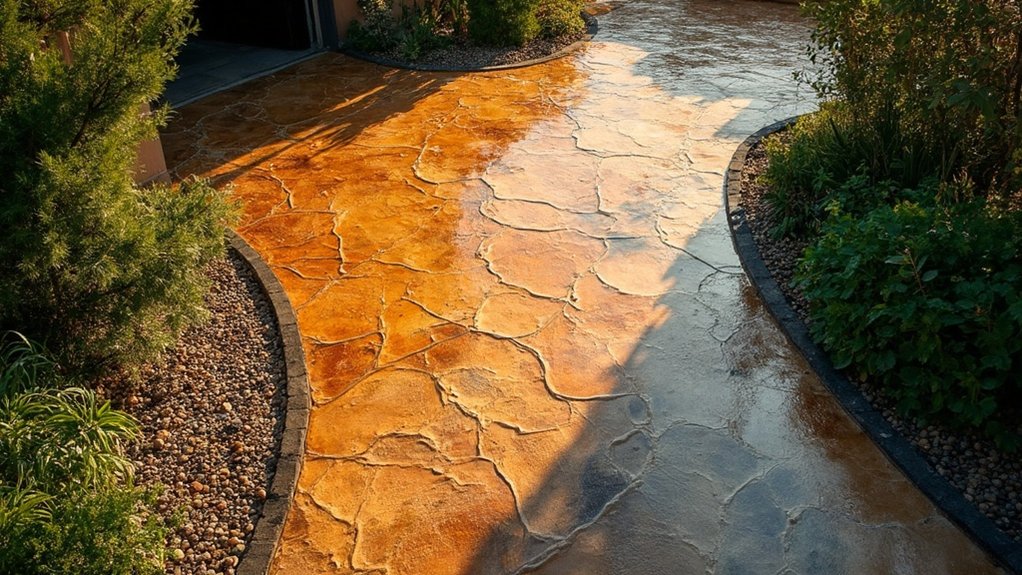
Porous resin driveways offer a compelling blend of practicality and aesthetic appeal. Their ability to seamlessly integrate into various landscapes, coupled with the versatility of design options, makes them a desirable choice for homeowners and businesses alike. The diverse color and texture possibilities allow for tailored designs that complement the surrounding environment.
Beyond functionality, the visual appeal of a porous resin driveway can significantly enhance the curb appeal of a property. Careful consideration of design elements, from patterns to colors, can elevate the aesthetic impact and create a truly unique feature. This section will delve into the diverse design possibilities, exploring how color, texture, and patterns can contribute to a visually appealing and personalized driveway.
Design Options for Porous Resin Driveways
Various design options cater to diverse preferences and architectural styles. Geometric patterns, such as stripes, squares, or hexagons, add a contemporary touch. More organic designs, like flowing curves or meandering lines, evoke a softer, natural aesthetic. The choice of design directly impacts the overall visual impact and personality of the driveway.
Color and Texture Incorporation
Porous resin driveways offer a broad spectrum of color options, ranging from neutral tones like beige and gray to vibrant hues like blues, greens, and reds. The color selection can be tailored to match existing landscaping or architectural elements, further enhancing visual harmony. Texture variations can also be incorporated, creating visual interest and depth. This can range from subtle variations in the resin’s surface to more pronounced textures, such as embedded aggregates or pebbles. The combination of color and texture plays a critical role in shaping the overall aesthetic of the driveway.
Patterns and Layouts
The choice of pattern and layout significantly impacts the aesthetic outcome. A simple, straight-line pattern can exude a modern, clean look, while a more intricate pattern can add a touch of sophistication. The layout can be tailored to accommodate specific needs, such as incorporating turning areas, pedestrian walkways, or other functional elements. Different layouts can also help create visual focal points or draw attention to specific areas of the property.
Aesthetic Appeal Compared to Other Materials
Porous resin driveways often exhibit a more modern and refined aesthetic compared to traditional asphalt or concrete driveways. Their smooth, uniform surface, combined with the ability to incorporate diverse colors and patterns, can significantly enhance the curb appeal of a property. The visual appeal is often enhanced by the resin’s ability to resist cracks and discoloration over time, ensuring a consistently attractive appearance.
Residential and Commercial Applications
Residential applications frequently showcase a blend of aesthetics and practicality. Homeowners often opt for designs that complement their home’s architectural style and landscaping. Commercial applications may prioritize durability and a professional appearance. The design can be adapted to fit the specific needs of the commercial space, whether it’s a retail store, office building, or parking lot.
Design Elements and Color Options
| Design Element | Color Options |
|---|---|
| Geometric Patterns (Stripes, Squares) | Neutral (Beige, Gray, Black), Vibrant (Blue, Green, Red) |
| Organic Patterns (Curves, Meanders) | Earthy Tones (Brown, Olive Green), Pastel Shades (Lavender, Mint Green) |
| Texture Variations | Natural aggregates (Gravel, Sand), Metallic accents |
| Integrated Lighting | Warm White, Cool White, Colored LED |
Cost and Durability of Porous Resin Driveways
Porous resin driveways offer a compelling alternative to traditional asphalt or concrete, but understanding their associated costs and durability is crucial for informed decision-making. These driveways, while often perceived as a premium option, can present cost-effective solutions in the long run due to reduced maintenance and enhanced environmental benefits.
The cost of a porous resin driveway is not a fixed figure and varies significantly based on several factors, including the materials used, the size and complexity of the design, and the labor involved. Furthermore, the long-term cost savings often outweigh the initial investment due to the extended lifespan and reduced maintenance requirements.
Cost Factors, Porous resin driveway
Several factors contribute to the overall cost of a porous resin driveway. Material costs, including the resin itself and any necessary aggregates, are a major consideration. Labor costs, depending on the complexity of the installation, can also vary. Design elements, such as intricate patterns or decorative features, will add to the total cost. Furthermore, site preparation, including excavation, grading, and drainage improvements, can influence the final price.
Cost Comparison to Traditional Alternatives
Comparing the cost of porous resin driveways to traditional alternatives reveals a nuanced picture. While the initial investment for a porous resin driveway may be higher than a comparable asphalt driveway, the long-term savings often outweigh the initial difference. The lower maintenance requirements and potential for reduced water runoff expenses frequently offset the higher upfront cost. Factors like local labor rates and material availability will further affect the comparative cost.
Lifespan and Durability
Porous resin driveways are designed for extended use, exhibiting exceptional durability. The materials used are resistant to cracking, chipping, and other forms of damage. Proper installation and maintenance practices are crucial for ensuring the longevity of the driveway. In many cases, porous resin driveways can last 20-30 years or more, depending on the level of care and environmental conditions.
Resistance to Weather Conditions
Porous resin driveways demonstrate good resistance to various weather conditions. They can withstand heavy rainfall, minimizing water damage. The material’s resilience against extreme temperatures, both hot and cold, is also a positive aspect. However, certain elements like prolonged freeze-thaw cycles, intense UV exposure, or severe impacts might affect the surface’s integrity over time. Factors such as the specific resin blend and the quality of the installation process play a critical role in determining the overall resistance to weather conditions.
Long-Term Performance Data
While concrete and asphalt driveways are well-established and have extensive performance data, porous resin driveways are a relatively newer technology. Nonetheless, case studies and anecdotal evidence from existing installations provide encouraging long-term performance data. Many projects demonstrate that with proper installation and maintenance, these driveways maintain their appearance and functionality for years. Further long-term data will be crucial to refine cost-benefit analysis and better predict the durability of these surfaces.
Cost Comparison Table
| Driveway Size (sq ft) | Type of Resin | Estimated Installation Cost ($) | Estimated Maintenance Cost (per year) ($) |
|---|---|---|---|
| 100 | Standard | 5,000 – 7,000 | 50 – 100 |
| 200 | Standard | 8,000 – 12,000 | 100 – 150 |
| 300 | High-Performance | 12,000 – 18,000 | 150 – 200 |
| 400 | High-Performance | 16,000 – 24,000 | 200 – 250 |
Note: These figures are estimates and may vary based on local factors.
Porous Resin Driveways in Different Climates
Porous resin driveways offer a sustainable alternative to traditional asphalt or concrete, but their performance can vary significantly depending on the climate. This section explores how different weather conditions affect porous resin’s longevity, suitability, and overall effectiveness. Understanding these factors is crucial for homeowners considering this material in various regions.
Porous resin driveways, while generally resilient, are susceptible to variations in temperature and precipitation. Their ability to absorb water and maintain structural integrity can be influenced by the specific climate in which they are installed. This impacts not only their visual appeal but also their long-term functionality.
Performance Variations Across Climates
Porous resin driveways exhibit varying degrees of performance in different climates. Factors such as temperature fluctuations, rainfall patterns, and the frequency of extreme weather events play a significant role in their durability and effectiveness. Warm, dry climates can often lead to quicker curing and potentially reduced maintenance needs, while cold climates can present challenges related to material expansion and contraction.
Suitability for Various Weather Conditions
The suitability of porous resin for different weather conditions hinges on careful material selection and installation practices. Regions with high rainfall may necessitate specialized drainage systems to ensure proper water runoff and prevent pooling. Cold climates require the use of frost-resistant resins and proper winter maintenance strategies. Areas with extreme temperature fluctuations might experience more rapid degradation compared to more stable climates.
Examples of Successful Installations in Different Climates
Numerous successful installations of porous resin driveways exist across diverse climates. For example, installations in regions with moderate rainfall and temperature fluctuations have demonstrated high levels of durability and aesthetic appeal. Likewise, regions with cooler temperatures have successfully implemented frost-resistant systems that have effectively withstood winter conditions. Thorough research into the local climate is essential to ensure a suitable choice for the project.
Challenges and Considerations for Porous Resin in Cold Climates
Cold climates present unique challenges for porous resin driveways. Freezing temperatures can cause the material to expand and contract, potentially leading to cracking or structural damage if not properly addressed. Specific frost-resistant resins and careful installation techniques are crucial to mitigate these risks. Proper winter maintenance, including protecting the driveway from extreme cold and snow, is also vital.
Comparison of Performance in Hot Climates with Other Materials
In hot climates, porous resin often performs favorably compared to traditional asphalt or concrete. Traditional materials can become extremely hot and uncomfortable to walk on, leading to discomfort for pedestrians and potential damage to the pavement. Porous resin’s ability to absorb and dissipate heat can contribute to a more comfortable environment and reduce the risk of cracking. The material’s high durability and resilience in extreme temperatures are also key advantages.
Performance Comparison Table
| Climate | Suitability | Challenges | Considerations |
|---|---|---|---|
| Warm, Dry | Excellent | Potential for quicker curing | Regular maintenance |
| Moderate Rainfall | Good | Proper drainage systems | Careful installation |
| Cold | Good with specific resins | Frost-related expansion/contraction | Frost-resistant resins, winter maintenance |
| Hot | Excellent (compared to other materials) | Potential for material expansion | Regular monitoring and maintenance |
Porous Resin Driveways and Accessibility
Porous resin driveways, with their versatility and aesthetic appeal, can be adapted to accommodate diverse mobility needs. Careful design considerations are crucial to ensure accessibility for individuals with disabilities, aligning with ADA (Americans with Disabilities Act) standards. This section explores the key elements of designing porous resin driveways that promote inclusivity and facilitate ease of movement.
Accessibility Features
Porous resin driveways offer excellent opportunities to incorporate various accessibility features. Smooth transitions between surfaces, appropriate slopes, and strategic placement of ramps are essential for seamless movement. The material’s durability and resilience contribute to a long-lasting and usable surface.
ADA Compliance
Adhering to ADA standards is paramount when designing porous resin driveways. These standards dictate minimum ramp slopes, appropriate surface textures, and clear walking paths to ensure safe and easy navigation for individuals with mobility limitations. Understanding these guidelines allows for the creation of a driveway that fosters accessibility for all.
Ramp and Slope Design
Creating ramps and slopes in porous resin driveways requires precise calculations to ensure safety and compliance with ADA guidelines. The slope must not exceed a specific gradient to prevent hazardous inclines. Materials used for the ramp should be slip-resistant and durable, complementing the porous resin surface.
Inclusive Design Examples
Examples of inclusive designs include wider driveways accommodating wheelchairs and mobility devices, strategically placed ramps for access to doorways, and tactile paving to provide visual cues for navigation. The incorporation of these elements creates a welcoming and accessible environment. For example, a wider driveway (at least 60 inches wide) allows for easy maneuvering of mobility devices.
Accommodating Mobility Needs
Designing porous resin driveways to accommodate mobility needs involves prioritizing safe and comfortable navigation. This includes minimizing trip hazards, maintaining appropriate slopes, and incorporating features like curb ramps and tactile paving.
ADA-Compliant Design Elements
| Design Element | ADA Compliance Details | Practical Considerations |
|---|---|---|
| Ramp Slope | Maximum slope of 1:12 (8.33%). | Ensure proper drainage and prevent water pooling. Use appropriate materials for the ramp surface, ensuring slip resistance. |
| Ramp Width | Minimum width of 36 inches. | Sufficient width for the safe passage of wheelchairs and mobility aids. |
| Surface Texture | Non-slip, even surface. | Porous resin can be treated to enhance slip resistance, particularly in wet conditions. Consider textured or patterned surfacing. |
| Clearance | Clear passageways free from obstructions. | Ensure adequate space for maneuvering wheelchairs and other mobility devices. |
| Curb Ramps | Compliance with ADA curb ramp specifications. | Transition smoothly from the driveway to sidewalks or other pedestrian areas. |
| Tactile Paving | Use of tactile paving to guide visually impaired users. | Strategically place tactile paving elements to indicate transitions and boundaries. |
Porous Resin Driveways and Local Regulations
Porous resin driveways, while offering environmental benefits, are subject to local regulations. Understanding these regulations is crucial for successful installation and long-term compliance. This section details the key considerations for navigating the permitting process and ensuring your project meets local standards.
Local regulations regarding porous resin driveways can vary significantly. These regulations often aim to balance the environmental advantages of permeable surfaces with existing infrastructure and community standards. Factors like stormwater management, drainage systems, and aesthetic considerations are often included.
Permitting Processes and Required Approvals
Understanding the permitting process is vital for smooth installation. This typically involves submitting detailed plans and specifications to the relevant local authorities. These plans must demonstrate compliance with local codes and ordinances. A comprehensive submission usually includes site plans, material specifications, drainage calculations, and any necessary engineering reports. The exact requirements may vary by jurisdiction.
Examples of Permitting Processes and Approvals
Permitting processes can range from simple approvals for minor projects to complex reviews for larger-scale installations. For example, in some areas, a simple building permit might suffice for a residential driveway, while a more extensive review process might be required for commercial applications. This review often includes considerations like potential impacts on existing infrastructure, stormwater runoff, and neighborhood aesthetics. Thorough preparation and communication with local authorities are key.
Compliance with Local Codes and Ordinances
Adherence to local codes and ordinances is essential for avoiding potential legal issues and ensuring project success. Local codes often dictate aspects like driveway dimensions, materials used, and connection to existing drainage systems. Consulting with local building inspectors and officials to clarify these requirements before starting construction is recommended. Non-compliance can result in costly delays, fines, or even project rejection.
Regulations in Various Jurisdictions
Regulations vary significantly based on location. For example, areas with stringent stormwater management regulations might have specific requirements for permeable paving materials, drainage systems, and post-installation inspections. In contrast, regions with less stringent regulations might have fewer specific requirements for porous resin driveways. Researching specific local codes and contacting the relevant authorities is essential.
Meeting Stormwater Management Standards
Porous resin driveways can effectively meet or even exceed local stormwater management standards. Their inherent permeability allows for better water absorption, reducing surface runoff and mitigating flooding risks. Proper design, including adequate drainage and connection to existing systems, is key to achieving these benefits. Consult with engineers familiar with local stormwater regulations to ensure your design meets or exceeds these standards.
Common Regulations and Requirements
| Location | Common Regulations | Specific Requirements |
|---|---|---|
| Residential Areas (e.g., US) | Building permits, compliance with zoning ordinances, and stormwater management guidelines. | Specific driveway size limitations, materials approved for use, and connection to existing drainage systems. |
| Commercial Areas (e.g., UK) | Planning permission, environmental impact assessments, and compliance with construction regulations. | Drainage design, runoff calculations, and potential for special permits related to site characteristics. |
| Areas with High Rainfall (e.g., Australia) | Stringent stormwater management requirements, specific drainage solutions, and permeable material testing. | Detailed design plans, runoff calculations, and potentially rigorous testing for the permeability of the chosen resin. |
Closure
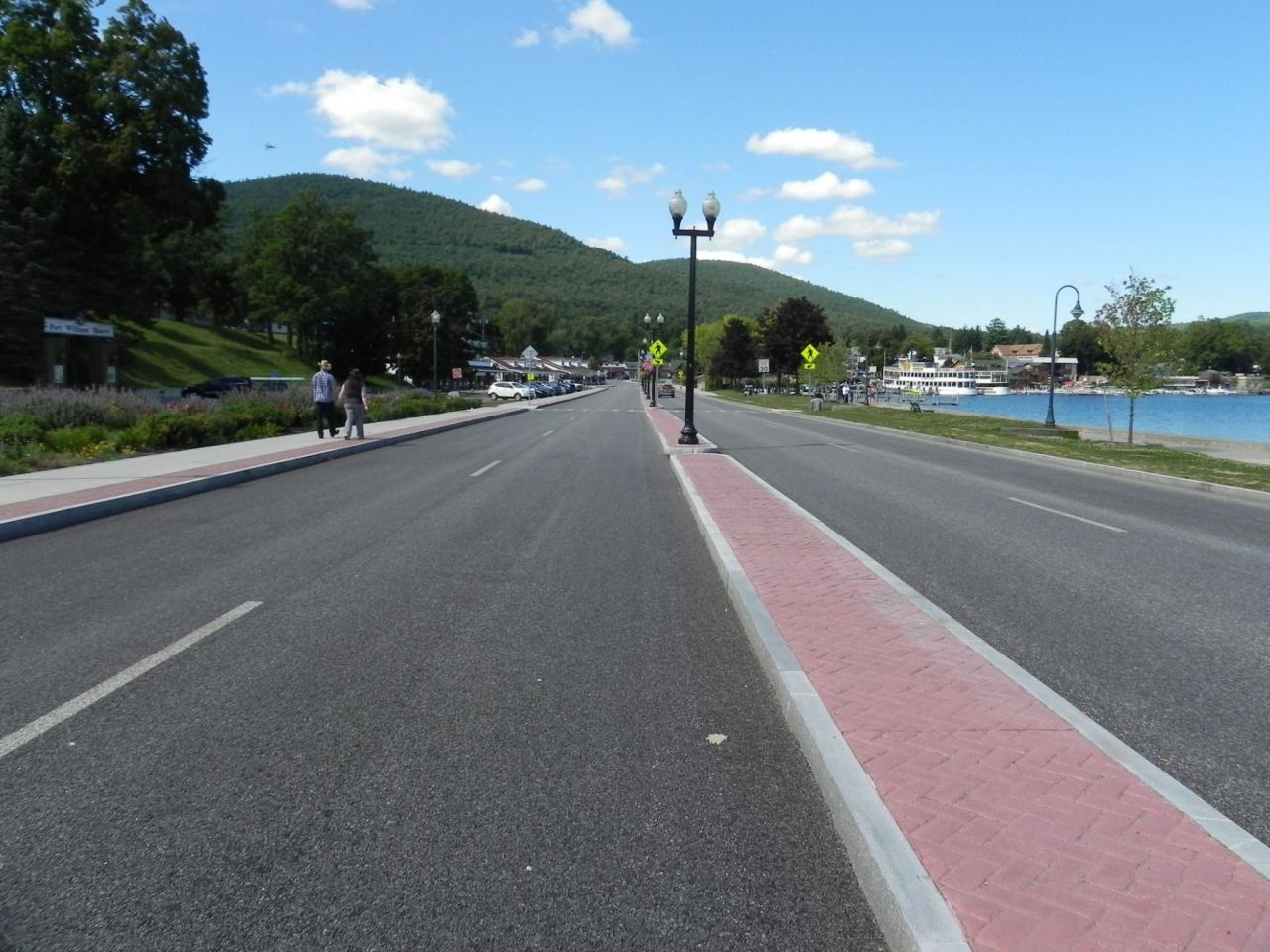
Source: theasphaltpro.com
In conclusion, porous resin driveways represent a significant step toward sustainable urban development. Their superior water absorption capabilities contribute to reduced stormwater runoff, benefiting local ecosystems. The detailed analysis of installation, design, cost, and climate suitability underscores the versatility and practicality of this innovative paving material. Moreover, the exploration of accessibility features and adherence to local regulations ensures that porous resin driveways can seamlessly integrate into existing urban landscapes while supporting the needs of diverse communities. Ultimately, this comprehensive guide equips readers with the knowledge necessary to make informed decisions about incorporating porous resin driveways into their projects.
